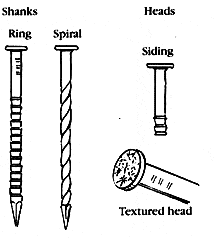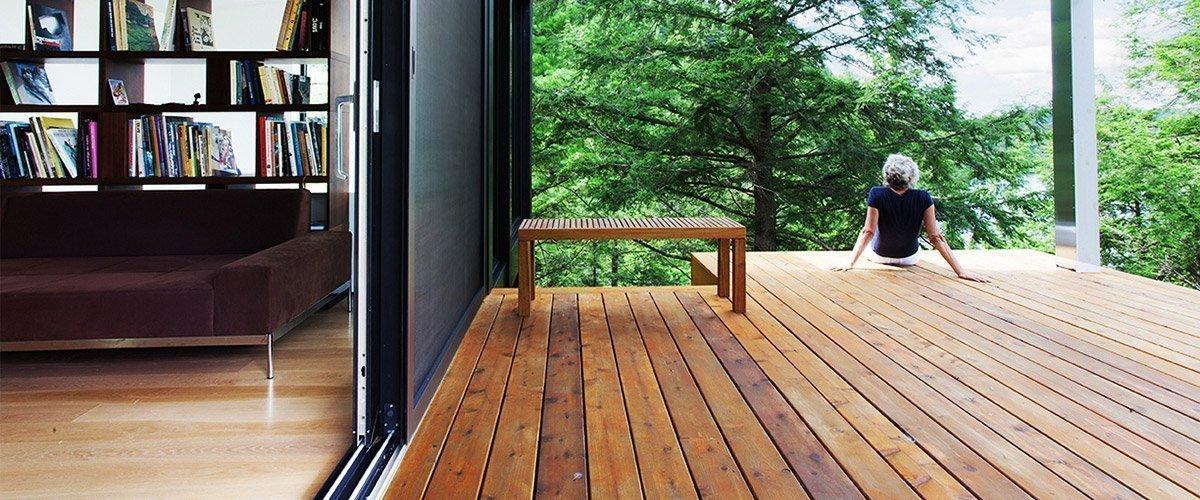Nails
 Hot-dipped galvanized, aluminum and stainless steel nails are all corrosion-resistant and all can be used to nail Western Red Cedar. Other types of nails, such as electroplated, are not recommended. They can rust and disintegrate and react adversely with the natural preservative oils present in cedar, resulting in stains and streaks. Copper nails also react with cedar and should not be used.
Hot-dipped galvanized, aluminum and stainless steel nails are all corrosion-resistant and all can be used to nail Western Red Cedar. Other types of nails, such as electroplated, are not recommended. They can rust and disintegrate and react adversely with the natural preservative oils present in cedar, resulting in stains and streaks. Copper nails also react with cedar and should not be used.
Stainless steel is the best choice but hot-dipped galvanized is the most widely used and economical.
Use 3″ (10d) nails to fasten decking with a nominal thickness of 2″ (51 mm) and 2-1/2″ (64 mm), (8d) nails on decking with nominal thickness of 1-1/4″ (32 mm). This will allow for nail penetration of approximately 1-1/2″ (38 mm) into deck joists for secure, trouble free construction (length may be reduced by 1/4″ (6mm) if ring or spiral shank nails are used). Deck boards 2″ (51 mm) wide need one nail per joist while 4″ (102 mm) and wider decking requires two per joist. To prevent wood from splitting, use thin shanked nails with blunt points.
Screws
Screws can also be used to fasten decks. Double hot-dipped galvanized screws can be used, however, stainless steel screws are recommended. For most applications a 304 (18-8) grade provides adequate corrosion resistance. For decks exposed to salt air, use 316 grade. Screws must be long enough to penetrate 1″ (25 mm) into support members. Penetration of 1-1/2″ (38 mm) is required for structural components.
Blind Fastening Systems
These systems create a fastener-free deck surface. They employ metal clips and/or joist top brackets that fasten the sides or bottom of the deck board to the joists so that no fasteners are visible.






